Prevention is the key
One of the important highlights of Resolution No. 72-NQ/TW is to shift the focus from "treatment" to "prevention", taking preventive medicine and grassroots health care as the foundation, so that people can access quality health services and receive comprehensive health management right at commune-level health stations.
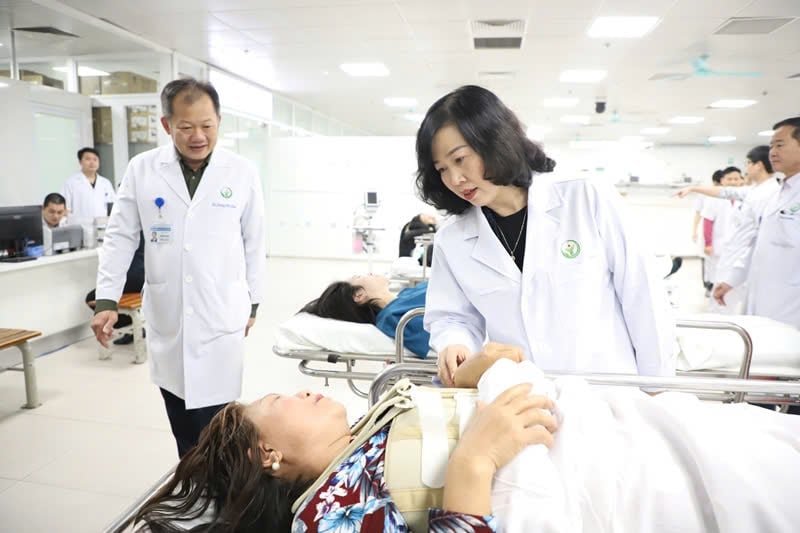 |
| The state budget will ensure regular expenditure and development investment for primary health care and preventive health care. In addition, the Ministry of Health will develop an appropriate financial mechanism to mobilize social resources for public health care. |
Minister of Health Dao Hong Lan said that to realize this policy, the Ministry of Health is focusing on implementing a number of breakthrough solutions. According to the Minister, the quality of services and the efficiency of the health system depend on three key factors: human resources, facilities, equipment, and financial mechanisms.
Regarding human resources, the health sector will prioritize the allocation and mobilization of resources, and at the same time issue outstanding policies and mechanisms to develop the grassroots medical staff and preventive medicine, ensuring uniformity in quantity, quality and structure. Special attention will be paid to human resources in remote, isolated, disadvantaged, border and island areas.
Commune-level health stations will be strengthened in the direction of sufficient human resource structure, ensuring the number of doctors according to functions and tasks; maintaining the team of medical staff in villages, residential groups, village midwives, and population collaborators.
In the period 2025-2030, each year at least 1,000 doctors will be rotated and assigned to work for a limited period at commune health stations. By 2027, each health station will have at least 4-5 doctors; by 2030, there will be enough doctors to meet professional requirements.
Training will be promoted with the Project on training and fostering source doctors for commune health stations, with priority given to difficult areas. At the same time, focus will be placed on developing a number of high-quality health training facilities at regional level, and implementing specialized postgraduate training according to the characteristics of the medical sector.
Regarding facilities, medicines and medical equipment, the Ministry of Health ensures adequate and timely supply, especially in remote, border and island areas. 100% of commune-level health stations will be invested in basic facilities and equipment in accordance with their functions and tasks. Along with that, the Ministry of Health is building and perfecting mechanisms and policies to ensure a stable, safe and timely supply of vaccines.
The Health sector takes the lead in coordinating with relevant ministries and sectors to promote investment, encourage domestic enterprises to research and produce vaccines, gradually master technology, meet the needs of the Expanded Immunization Program and proactively respond to emerging epidemics.
Regarding financial mechanisms and organizational structure, commune health stations will be organized according to the model of public service units, ensuring the provision of basic and essential services such as disease prevention, primary health care, medical examination and treatment, and social care services.
The state budget will ensure regular expenditure and development investment for primary health care and preventive health. In addition, the Ministry of Health will develop an appropriate financial mechanism to mobilize social resources for public health.
The state budget still plays a leading role in investing in facilities and equipment for primary health care, especially for social policy beneficiaries, ethnic minority areas, mountainous areas, islands, disadvantaged areas and specific fields such as psychiatry, forensic medicine, emergency resuscitation, pathology, etc.
Minister Dao Hong Lan emphasized that all these solutions aim to realize the spirit of “innovation, creativity, acceleration, breakthrough” set forth in Resolution 72-NQ/TW, so that every Vietnamese citizen can receive comprehensive health care and protection, from prevention to treatment. Commune-level health stations will have the conditions to improve their professional capacity and service quality, attract and build solid trust with the people.
Attracting private investment
Minister Dao Hong Lan said that although the health sector has received investment attention, with the limited state budget capacity, attracting investment from the private economic sector is a necessary solution. Resolution 72-NQ/TW was issued in the context of the Politburo issuing and synchronously implementing the "four pillar resolutions", including Resolution 68-NQ/TW on private economic development.
Therefore, tasks and solutions to attract and develop private healthcare are prioritized with outstanding policy mechanisms to create trust for businesses, unlock investment resources and develop healthcare facilities.
The Ministry of Health has acknowledged positive signals from the private healthcare community as it welcomed this resolution as a breath of fresh air, arousing motivation and determination to invest in public healthcare.
The Resolution specifically encourages investment in developing the provision of high-quality health care services, disease prevention services, scientific research, human resource training, production of drugs, vaccines, medical equipment, inspection, testing, and calibration.
In particular, encourage the development of large-scale private hospitals with specialized technical skills on par with developed countries.
Private investment and public-private partnership activities are facilitated according to the law, with priority given to clean land and recovered land, allowing conversion of land use purposes to medical land; reducing or exempting land use fees, land rents, and land taxes for domestic medical facilities.
No corporate income tax will be applied to public and private non-profit medical facilities. The Ministry of Health will coordinate with the Ministry of Finance and relevant agencies to synchronously deploy solutions so that the policy can be effective from 2026.
Development of high medical technology and digital transformation
In the context of globalization and digital transformation being inevitable trends, according to Minister Dao Hong Lan, the Ministry of Health identifies the development of science and technology and innovation as a key breakthrough task.
The Ministry will develop mechanisms and policies to promote comprehensive digital transformation of healthcare, deploy electronic health books, electronic medical records, electronic prescriptions, and complete the national healthcare database, ensuring connection, interconnection, and management of people's health throughout the life cycle.
The Ministry of Health directs and guides the application of artificial intelligence, big data, blockchain, and the internet of things in medical specialties such as forecasting, diagnosis, treatment, and management to improve service quality, transparency, and efficiency.
The Ministry also coordinates with ministries, branches, institutes and schools to form high-tech research centers on gene technology, nanotechnology, regenerative medicine and nuclear medicine, aiming to bring Vietnamese healthcare to international standards.
Promote international cooperation in learning, technology transfer, participation in global medical research networks and cooperation with technology enterprises.
The Ministry of Health has proposed a mechanism to prioritize the development of pharmaceutical, vaccine, biological, and medical equipment industries, aiming for self-sufficiency and building a pharmaceutical industrial park by 2030. The orientation is to accelerate digital transformation, promote high technology, and perfect policy mechanisms so that all people can enjoy modern, equitable, and sustainable healthcare.
Source: https://baodautu.vn/doi-moi-y-te-tu-phong-benh-dau-tu-tu-nhan-den-cong-nghe-cao-d386424.html







![[Photo] Prime Minister Pham Minh Chinh attends the groundbreaking ceremony of two key projects in Hai Phong city](https://vphoto.vietnam.vn/thumb/1200x675/vietnam/resource/IMAGE/2025/9/27/6adba56d5d94403093a074ac6496ec9d)


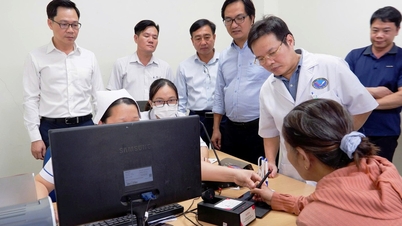

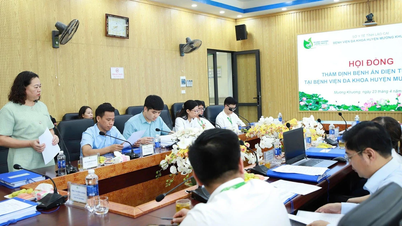




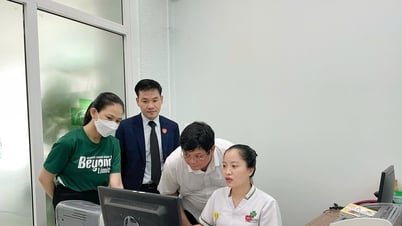



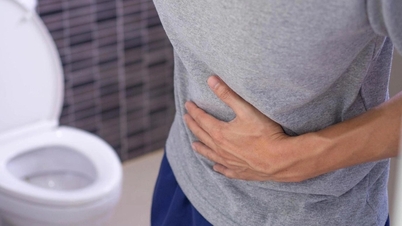













































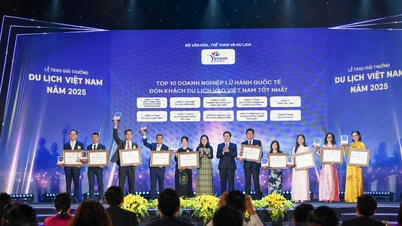

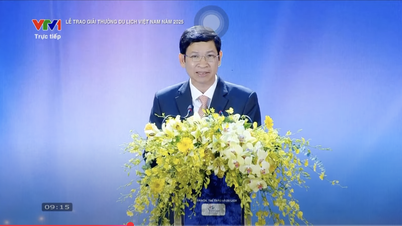













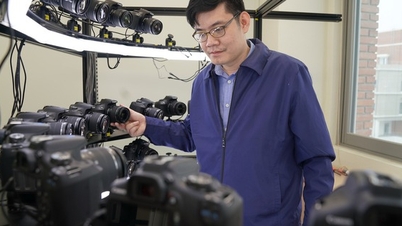



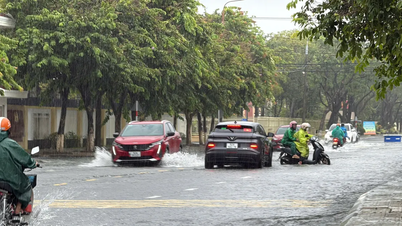


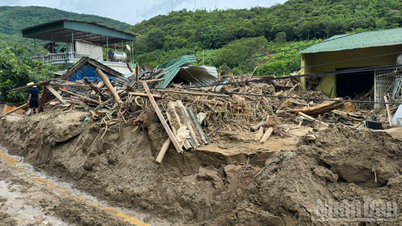

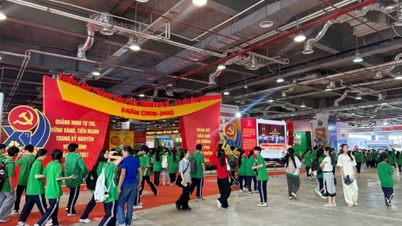
















Comment (0)